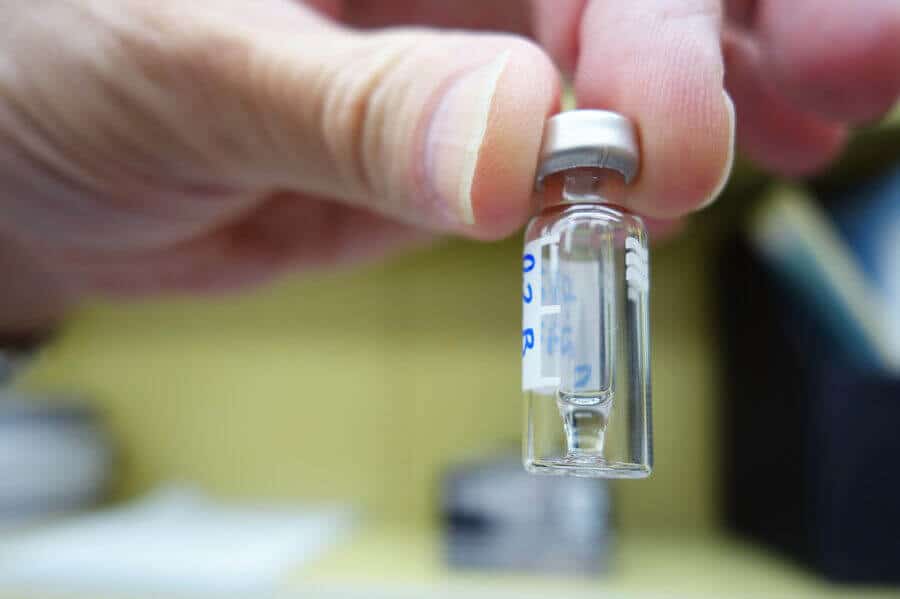In 1970, Ketamine was approved as a general anesthetic, a medication used to put patients to sleep for surgery or procedures. Over time, healthcare providers noticed that lower doses of ketamine have positive effects on individuals struggling with depression, anxiety, and PTSD. It also appears to provide pain relief to some patients living with chronic pain.
But outside of the medical world, ketamine has been crowned a “club drug” which many people use for its hallucinogenic effects. Recent studies show that seizures of illicit ketamine by the DEA have jumped 349 percent from 2017 to 2022. As both medical and illicit ketamine use continues, it is important to examine the potential health benefits that ketamine offers and the alarming risks associated with its misuse.
What Are the Potential Medical Uses of Ketamine?
Ketamine is classified by the DEA as a Schedule III controlled substance, which means it has a moderate potential for abuse and dependence and can only be administered or prescribed by licensed clinicians with the authority and expertise to support its effective use. Experts have prescribed ketamine “off-label” to help treat the following health issues:
- Depression: Traditional antidepressant medications can take weeks or even months to take effect, leaving patients dealing with depressive symptoms in the meantime. Ketamine, on the other hand, has shown rapid antidepressant effects, often within hours of administration. It is believed that ketamine acts on certain receptors in the brain, leading to an increase in the production of glutamate, a neurotransmitter involved in mood regulation.
- Chronic pain: Ketamine has been found to be effective in managing various types of chronic pain by blocking certain receptors in the brain and spinal cord that are involved in pain transmission. Additionally, it has anti-inflammatory properties that can further alleviate pain. While more research is needed to determine the long-term effects and optimal dosages for chronic pain management, ketamine infusion therapy has shown promise as a viable treatment option for individuals with debilitating pain conditions.
- Post-traumatic stress disorder: Individuals with PTSD often suffer from intrusive thoughts, nightmares, and hyperarousal symptoms that significantly impact their quality of life. Ketamine has shown great potential in reducing the symptoms of PTSD, particularly intrusive thoughts and hyperarousal. It is believed that ketamine’s ability to enhance neuroplasticity, or the brain’s ability to reorganize and form new connections, plays a role in its therapeutic effects. However, further research is needed to fully understand ketamine’s efficacy and safety in treating PTSD.
One of the common ways of administering ketamine is through infusion therapy where the drug is delivered intravenously in a hospital setting and typically lasts around 40 minutes. Although ketamine does show promise in treating certain conditions, you should never self-treat using ketamine as it has a high potential for abuse and negative side effects like respiratory depression. Speak with a professional if you are interested in exploring ketamine treatment and they can work with you to make an informed decision.
Why is Ketamine Abuse Rising?
Compared to some other illicit substances, ketamine is often perceived as being relatively safe due to its use as an anesthetic in medical settings. This perception can lead to a false sense of security and a belief that its recreational use carries fewer risks.
On top of that, ketamine’s reputation as a “club drug” has made it a popular drug among teens. The substance amplifies sensory reactions. At parties and raves, ketamine can intensify the sounds of music and experience of lights and atmosphere and produce a calming sensation for users. However, ketamine can lead to adverse side effects such as elevated heart rate, nausea, and a frightening detachment from reality.
Consequences of Ketamine Abuse on Physical Health
Ketamine abuse can lead to a range of physical side effects that vary in severity depending on the dose, frequency, and duration of ketamine abuse. Prolonged and excessive use of ketamine can take a toll on various bodily systems resulting in cardiovascular and urinary problems. Common physical symptoms associated with ketamine abuse include:
- Elevated blood pressure
- Shallow or irregular breathing patterns
- Nausea
- Loss of coordination
- Potential bladder and kidney damage
- Headaches
- Tremors
- Appetite suppression
- Weakened immune responses
Consequences of Ketamine Abuse on Mental Health
While ketamine may initially produce pleasurable effects, prolonged use can result in significant psychological distress. Heavy ketamine users often experience mood swings, depression, anxiety, and paranoia. The dissociative properties of ketamine can lead to a sense of detachment from reality, exacerbating existing mental health conditions or triggering new ones.
Research suggests a link between ketamine abuse and an increased risk of developing psychiatric symptoms such as those related to psychosis. The link between ketamine and mental health disorders is complex and requires further investigation. However, it is clear that the drug’s effects on brain chemistry can have long-lasting consequences on mental well-being.
Consequences of Ketamine Abuse on Relationships
The impact of ketamine abuse extends beyond the individual. The unpredictable behavior associated with ketamine use can lead to strained relationships, as family and friends may feel helpless or frustrated. And the emotional distance caused by the drug’s dissociative effects can create a sense of isolation and detachment, making it difficult for individuals struggling with ketamine abuse to maintain strong connections.
Romantic partnerships can be particularly affected by ketamine abuse. The drug’s addictive properties often result in neglect of personal and emotional needs, leading to strained intimacy and communication. Trust issues may arise because of secretive behavior and broken promises. In addition, financial stress resulting from the cost of obtaining ketamine can further deteriorate relationships.
Ketamine Addiction Treatment
If you feel that your ketamine abuse has impacted your overall well-being and disrupted your daily life, it may be time to seek help. Ketamine addiction treatment typically involves a comprehensive approach that addresses both the physical and psychological aspects of addiction.
The first step in treating ketamine addiction is often detoxification. This process helps individuals safely and gradually withdraw from ketamine while managing withdrawal symptoms such as muscle aches, nausea, and panic attacks. Medical professionals closely monitor the patient during detox and prescribe medications to alleviate uncomfortable withdrawal symptoms and manage cravings.
Therapy and counseling play a crucial role in ketamine addiction treatment. Different therapeutic approaches, such as cognitive-behavioral therapy (CBT), individual counseling, group therapy, and family therapy, are commonly utilized. These modalities aim to help individuals explore the underlying reasons for their addiction, develop healthy coping mechanisms, and learn strategies to prevent relapse.
For those who used ketamine to self-treat chronic pain, wellness therapies such as acupuncture or yoga might appeal to them as it strengthens the mind-body connection. And people struggling with depression might benefit from engaging in qigong or going on a hike which can help stretch the body and promote mindfulness.
Next Steps
Although ketamine treatment has produced promising results, it is crucial to recognize that it is not a cure-all drug. Not everyone who takes ketamine will experience the same relief from their psychological and/or physical struggles that others do. Ketamine has a high risk of abuse and adverse side effects so speak with a healthcare to discover the best treatment option for you.
If you or a loved one is struggling with addiction, Mountainside can help.
Click here or call (888) 833-4676 to speak with one of our addiction treatment experts.

 By
By 







